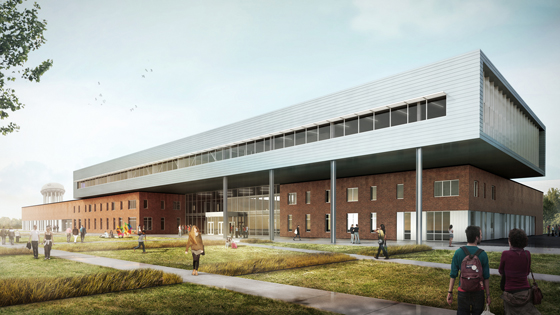The strong collaboration between Wichita State University and the business community is highlighted in a new Brookings Institution analysis of research and development spending in the United States.
The report praised Wichita and WSU’s Innovation Campus as one of a few places in the country in which industry and academia are engaged in a "productive, innovation-oriented partnership."
The analysis pointed to the National Science Foundation’s recent Higher Education R&D Survey that tracks the total value and source of R&D expenditures at U.S. universities. Wichita State ranked third nationally in the amount of business-funded R&D relative to metro GDP — placing Wichita ahead of traditionally touted innovation centers Austin, Texas; Boston; New Haven, Conn., and Raleigh, N.C.
“The report reflects an accelerating trend on our campus," said WSU President John Bardo. “The Experiential Engineering Building opening in fall 2016 and the Airbus building opening in January 2017 will both bring more industry-supported research to campus.
“We also have WSU faculty and staff deeply involved in the Blueprint for Regional Economic Growth. The action steps being developed in eight BREG industry clusters, including advanced manufacturing and materials, will create economic growth in the 10 counties of South Central Kansas and generate additional industry-sponsored research on campus."
Vibrant industry
The analysis said WSU’s National Institute for Aviation Research and a vibrant and growing advanced manufacturing and aerospace industry cluster secured Wichita’s place among the nation’s more prosperous and dynamic locales, noting that R&D institutions whose core competencies align squarely with local industry tend to attract the most private investment.
WSU’s Innovation University model was also praised, as the report noted that collaborative forms of R&D — where researchers from different sectors engage with a wider ecosystem of users, competitors and developers of complementary technologies — promise to be the most productive as technology becomes more complex.
The Brookings Institution is a nonprofit public policy organization based in Washington.


 File
File